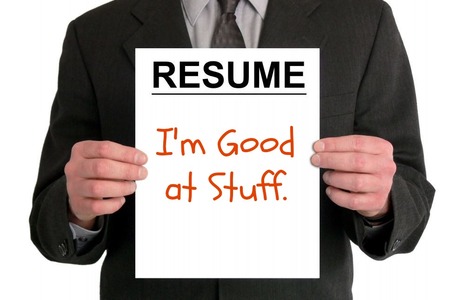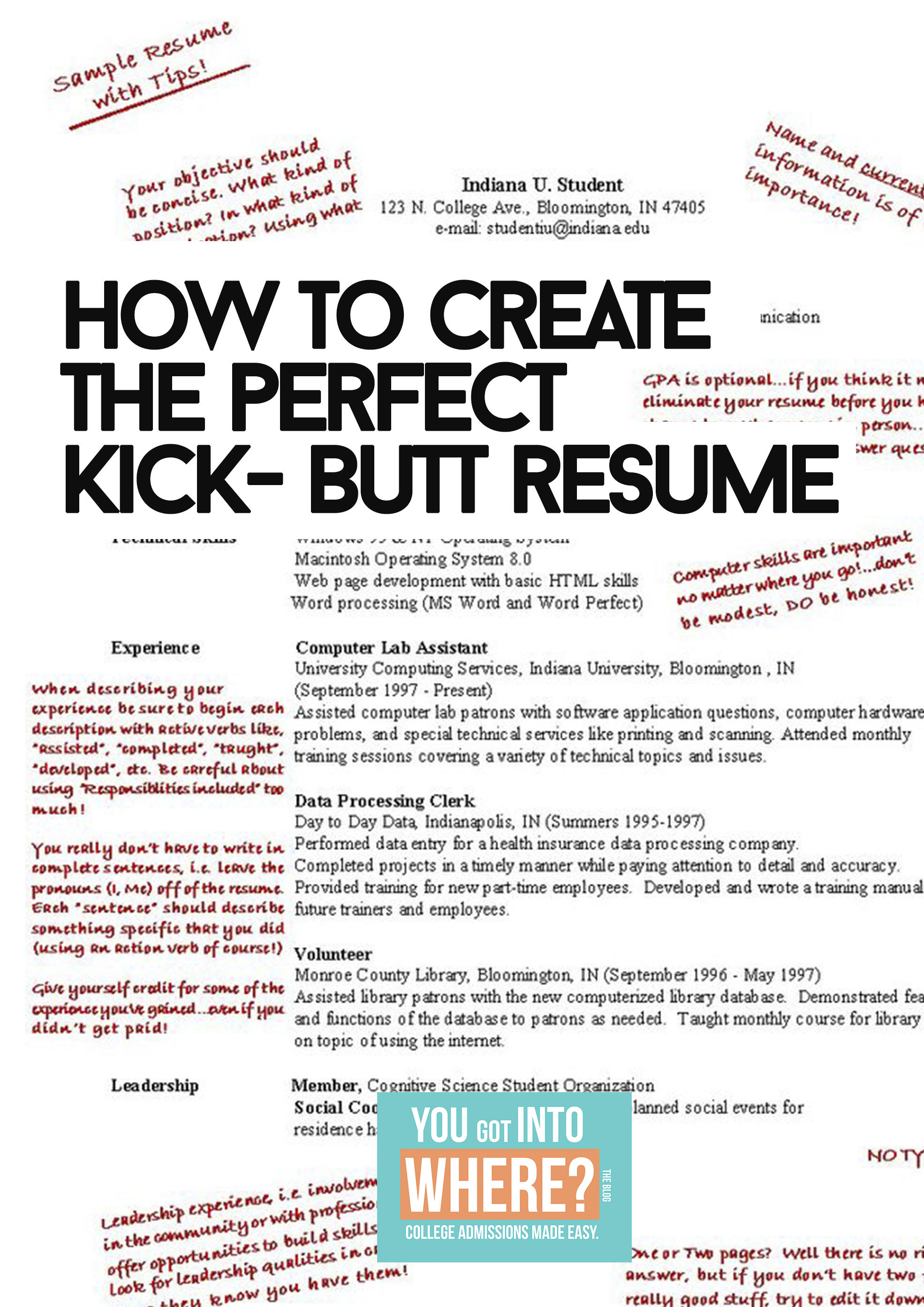How to Create the Perfect Kick-Butt Resume
/There I was, sitting in my first college class. The teacher had just given us our first big assignment….to create a resume. As a dual enrollment student, I was struck. What exactly is a 17-year-old supposed to write about on their resume? I knew this assignment was very important. After all, a resume is a key to success. You use it for jobs, internships, scholarships, and college. But many teens like myself may have little to no work experience. Creating a resume doesn’t have to be difficult, though. With careful reviewing and processing, anyone can come up with a resume that’ll leave future admission officers and employers in awe.
Personal Information
Begin your resume by providing your background information. Don’t, however, provide your race, social security number, or age. All resumes should include your contact information. This should include your first and last name, your email, and a phone number you can be reached at. Be sure to make sure that this information is as current as possible because you never know when someone may call to offer a position or admission!
Academics
Next, you need to include your highest level of education. List where you attend or have attended school and when you graduated. If you are still in high school, put down your anticipated graduation year. If you are a dual enrollment student, be sure to put the name of the college you are currently taking classes at. Your GPA and class rank may also be included next to your school’s name if it is appropriate. You should also list any awards or recognition you may have received. This can include Regional Science fair awards, academic honor roll, art competition awards etc.

Experience
Now this is the important part! Listing the activities you do outside of the classroom gives others a view of you as a person (test scores only tell so much). It gives future employers and admission committees a glimpse of your interests and passions. You may want to begin by listing the activities that you have gained valuable skills and experience from that are school related. When writing these experiences on your resume, be sure to spell out the names of clubs or societies like National Honor Society. Even though you know it as N.H.S., others may not know what it stands for. Also, include a brief description of the club if it is unique. For example, you may need to describe what clubs like Key Club are. It is also important to include any leadership roles you have taken on. Taking a leadership position is a great way to show others that you are capable of having many responsibilities. When you are describing what your responsibilities are, avoid using “I “or “me”. Instead, use action words like “organized” or “cooperated”. Having a commitment to a certain activity also shows colleges what type of person you would be on their campus.
Work/Volunteer
One of the most important parts of your resume is your work experience. As usual, having more experience makes you look more favorable to whoever is looking at your resume. However, as teens, we may have less than stellar experience. But that’s normal for people just entering young adulthood, and colleges and employers will know that. So don’t worry if you don’t have much to put in this area of your resume because that’s where your involvement in extracurricular activities will benefit you!
If you do happen to have work experience, that’s great! Work experience can mean anything where you put your skills to work. Specifically, on a part-time job, at an internship or through volunteer work. Keep in mind that even a simple after-school job can leave you with a positive effect on future employers and admission officers. It shows your maturity and ability to handle responsibility. You also get bonus points from admission officers when your part-time job or internship relates to your intended area of study.
Even though it may seem as if you won’t need a resume until you are out of college and looking for work, that’s not the case. Many colleges are recommending students to send in resumes along with their application for review. So if you use these tips, you’ll be well on your way to getting accepted or landing a job!









